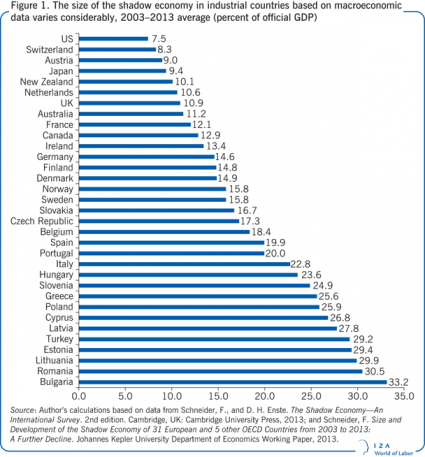August 31, 2015
By: Kelly Diamond, Publisher
 The primary candidates on both sides are amping up the rhetoric against “illegalities” and “safety”, while trying to temper it with some feigned reverence for civil liberties and individual rights.
The primary candidates on both sides are amping up the rhetoric against “illegalities” and “safety”, while trying to temper it with some feigned reverence for civil liberties and individual rights.
Donald Trump and Bernie Sanders have it out for illegal immigrants.
Trump thinks immigrants should all be here legally. He’s toyed with the idea of a merit based process based on productivity, but he ultimately wants to bolster the border with walls and more men and send the bill back to Mexico.
Sanders thinks that illegals hurt Americans because they take jobs for less money, which also depresses wages in the US. Sure he’s all for helping those already here, but wants to prevent new immigrants from entering. He and Trump are both quite aligned on this issue.
(I’d tell you Hillary Clinton’s position on all this, but ‘what difference does it make?’)
The assumption here is that by making people go through this process to gain legal status to simply BE in the United States, the crime rates will go down, jobs and wages will go up, and we’ll be safer for it.
Crimes by illegal immigrants will go down, but crime in general won’t be affected. Crimes are committed by certain types of individuals, and those types exist all around the world. They don’t exist in greater numbers here or there. They simply exist. So whether they commit their crimes here or there really doesn’t affect the crime rate. That’s like moving your broccoli to the other side of the plate and saying you made the broccoli go bye-bye.
Jobs and wages aren’t determined by the legal status of an individual, nor are they a zero sum game. Jobs and wages are more adversely affected by taxes and regulations since those both stymie the creation of new jobs at various wages. The hike in the minimum wage, for example, has done more to slow job growth and reduce true un- and underemployment than the mere existence of more immigrants legal or otherwise.
This is where “System D” comes in. System D is a term derived from the French word “débrouille”, meaning to “get by; figure it out”. It is in reference to many poor or indigent people who do what they must to survive. By the mainstream, they are widely regarded as underground or black markets. By libertarians, they are regarded as entrepreneurs and agorists.
These are common practices amongst America’s “illegal immigrant” population, as well as legal citizens all around the world.
From the guy selling oranges at the intersection or mowing a lawn in Los Angeles, CA to the street vendor selling air time in Nigeria, there are millions of people who do not seek permission from their government to make or earn a living. Governments don’t like this because this is a prosperous and industrious community of people who don’t pay taxes. But this System D community courageously provides goods and services that are in high enough demand to keep them going!
While politicians and government toadies focus on the illegality of something, they often deliberately ignore the benefits of that activity and the negative toll criminalization has taken on society and the economy. So what we hear about ad nauseam is how the illegal stole an American’s job… how the unlicensed street vendor stole business from the licensed store front… how the online business stole business from the brick and mortar shops… how the big box stores steal from the mom and pop establishments. That’s what we get fed.
What we have to find for ourselves after serious investigation are the benefits of that competition… and the COSTS to society for prohibiting that competition.
The thing is, that while the man selling oranges and phone cards is turning a profit, he would never be able to afford the cost of meeting all the government requirements for being a “legal” business. Unlicensed and unregulated, these business men and women go about their day, engaging in commerce within their cities or villages. There really isn’t anything very “underground” or covert about them, come to think of it, as they operate in plain sight.
The same aspersions being cast on crypto currency and cash transactions are the same rhetorical shadows being cast upon “illegal” businesses. Apparently, until a person or business gets their official government papers all filed away, they are just seedy and dangerous. But, once the papers are filed and signed, THEN you become this great upstanding citizen. Magical!
Legality carries a lot of weight. It is often conflated with words like “morality” and “legitimacy”, when in fact legality has nothing to do with either. Legality has to do with having the government’s blessing. That’s all. So then people get upset for two reasons over illegal behavior: 1. There is the obvious threat of getting caught and punished for it; and 2. It’s not fair that they follow all the rules and pay through the nose while others just bypass those rules and go straight to the business of living at a lower cost.
The face of small business isn’t what people are conditioned to think it is. It’s not just one dude behind a computer or a couple opening a café. It’s millions of individuals acting as distributors for not just homemade goods and services – while that is absolutely part of it – it’s millions of individuals distributing the goods of huge multinational corporations because these large corporations learned one thing: the consumers in some markets trust and prefer to obtain their goods from small vendors rather than established shops and stores.
This is more typical in 3rd world countries than perhaps in the US, but underground economies are operating in the developed world and the developing world, and they will continue to do so. Our guy Stephen Hilgart even encountered it during his trip to China! (A very interesting read on Chinese tax evasion.)
Los Angeles has about 50,000 unlicensed street vendors that roughly generate about half a billion dollars in business annually. Back in 2012, it was estimated that nearly $2 Trillion (with a T!) was tied up in America’s “shadow economy”.
LA’s attempt to “legalize” and regulate street vending failed simply because it was too restrictive and expensive for the vendors to comply. Local bodegas and shops complained of street vendors in the same way taxi drivers complained about Uber, Lyft, and Sidecar, or the way restaurants complain of food trucks, or the way citizens complain of illegal immigrants.
The established entities all want the new-comers to pay their dues, wait in line, and pay more dues, never once considering if the line and dues are really necessary for life to continue. The truth is, life would barely continue for millions of people around the world if they DIDN’T ignore the rules imposed by the government.
More commerce and more participants means more competition and more choices. Whether the pool is of goods and services or workers. It keeps quality up, prices down, and market participants dynamic and active.
That such large swaths of people are willing to risk imprisonment, fines, and loss of their life and property to migrate or operate a business says WHAT exactly about the system and the current perception of “illegality”?
Débrouille. System D. Proof that the market wants to work; it wants to provide for people. It must be allowed to do so, and criminalizing those who make their way in life is hardly a solution to any real existing problem, much less becoming of anything calling itself a “civilized society”.
This isn’t a call to break the law or even to civil disobedience. Nor is it an admonishment for those who do. It is an observation of, and even an alibi for, the free market. And while some take their chances avoiding the law, and working around it, there are also options to work well within the legal lines and still avoid several costs imposed by the state, which is where GWP operates.
If you get a chance, I entreat you to watch this video below. It’s only 12 minutes long, but very insightful.
To set up a consultation, click here now!


